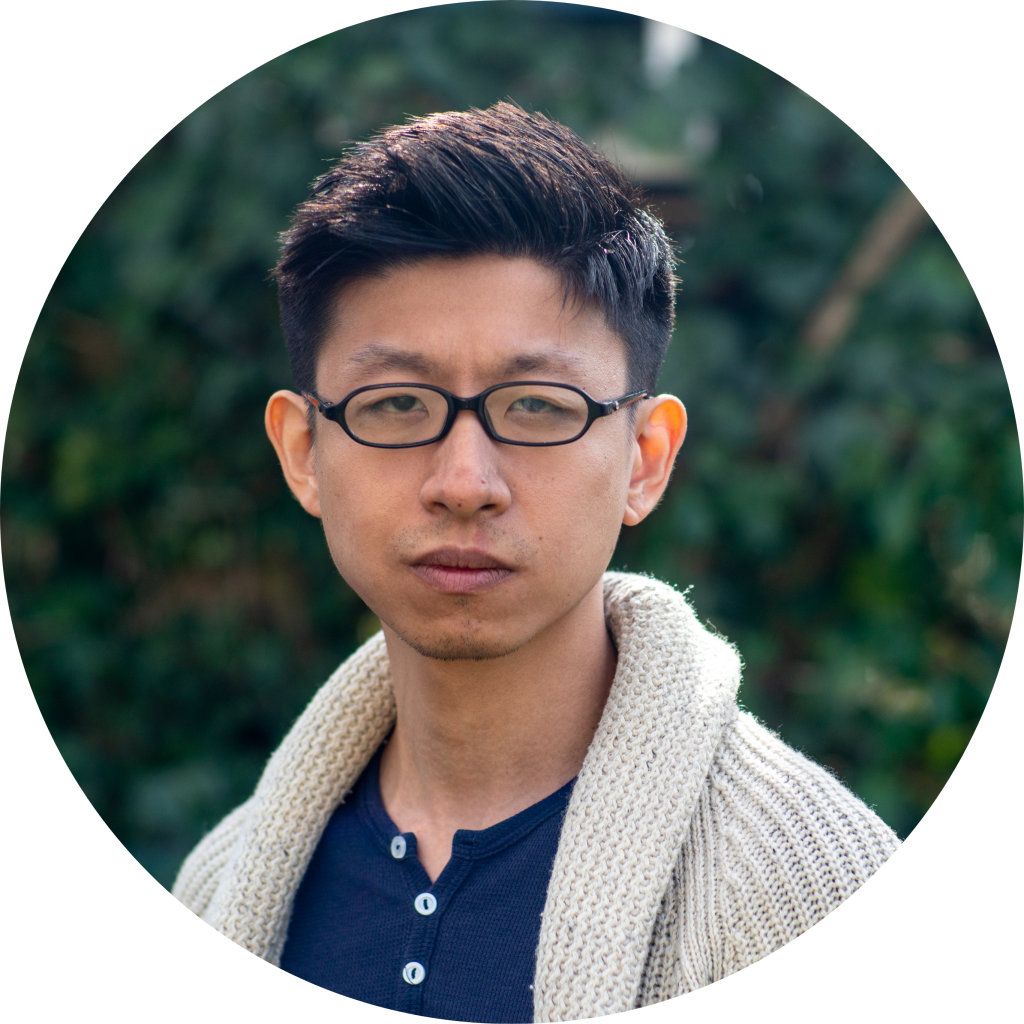
We don’t like to peddle conspiracy theories at Pandemic University but we’re pretty sure there’s two of Ethan Lou. What else would explain his crazy productivity?
To begin with, Ethan’s journalism often requires lots of heavy lifting and work-arounds. He does what needs to be done to cover such topics as a secret parliamentary briefing or homicide in Singapore.
On top of that though, Ethan will release two deeply reported books before the next summer.
Field Notes from a Pandemic: A Journey Through a World Suspended, out in September, might be the first major book published on the Covid-19 pandemic. Based on his Maclean’s essays, “My travels through a land in lockdown” and “A continent divided by the pandemic,” it’s a 2020 time capsule in travelogue form. He wrote it so quickly that his debut book, Once a Bitcoin Miner: Scandal and Turmoil in the Wild West Cryptocurrency, will no longer be his debut when it’s released in May 2021. (Both books are available for pre-order in the Campus Bookshop.)
You’d think the effort required to write such elusive stories would limit his output. And yet, Ethan seems to have many interesting stories to tell, and knows as many interesting ways to tell them.
Hence why we’re inclined to believe there’s not one Ethan Lou but two or three. Heck, there might be an entire army of Ethan Lous out there, running names through the courts, filing freedom-of-information requests, and hunting down old graduate theses from evasive powerful figures.
All the better for our post-truth world.
Or, maybe, there is just one Ethan Lou with a very efficient system for spinning a good yarn with limited information.
Find out for yourself in his Aug. 27 class “Intrusion and Investigation: Getting Around Difficult Subjects”, in which he promises to share investigative techniques. (Tickets are $20 CAD and available until Thursday, 12pm ET. Register here.)
Ahead of his class, we asked Ethan about how he secured one of the first book deals on Covid-19, the personal Bitcoin investment that helped spur his reporting, and the secrets of his productivity. (Spoiler alert: there’s a third book.)
Register for Intrusion and Investigation (C$20)What’s the most unconventional strategy you have used to get information for an investigative piece? And did it pay off?
In Once a Bitcoin Miner, one of the most difficult subjects was an Alberta Securities Commission investigator, Louise Panneton (if you’re reading this, Louise, I still want to talk). There was no access from the commission, obviously, and Panneton, like many in law enforcement, I guess, is a bit of a ghost online and offline. I relied heavily on freedom-of-information requests and Panneton’s graduate thesis, which was a springboard for all sorts of other public records.
Then there was the receipt.
It was from a sushi restaurant by someone from Panneton’s department (very likely her, although the name was redacted) which I obtained from that freedom-of-information request. The night of that dinner is an important plot point in the book, so any details I could gather from it were important. I spent a whole day with the restaurant’s menu and a calculator to pin down what the investigator ate. I found the unnamed investigator ate healthily but was a bad tipper, so that was a good detail. Then I went down to the restaurant to try all the foods so that I could comment on them.
I ended up literally in North Korea, and a guy who went with me, who denies any wrongdoing, is now facing 20 years in prison for allegedly violating sanctions by teaching the locals about blockchain.
You invested in Bitcoin as a university student, eventually bringing in huge money from it. How did being enmeshed in the story from the start help inform your reporting going forward?
It’s a bit like Joaquin Phoenix in I’m Still Here. It’s hard to tell where the rapper ends and the actor begins. I don’t think Phoenix himself can firmly pin that down. That experience definitely made for some wild rides and extreme experiences.
At one point, as I write in the book, I ended up literally in North Korea, and a guy who went with me, who denies any wrongdoing, is now facing 20 years in prison for allegedly violating sanctions by teaching the locals about blockchain.
Your forthcoming book, Field Notes from a Pandemic: A Journey Through a World Suspended, began with an essay about your journey to see your grandfather in China. What was it like turning that into a book so suddenly?
The behind-the-scenes story is actually rather straightforward and not very exciting. Way before that Maclean’s piece, I was already talking with my agent, Rob Firing of Transatlantic, about a potential next book. I had a few potential paths. All were winners, I felt. It was just a matter of opportunity cost.
When I’m writing, I’m in the proverbial zone, or flow, as those psychology people call it. My phone can ring, the building can catch fire and day can turn to night, and I won’t notice.
The pandemic was actually not among my ideas. It was largely Rob’s, after the Maclean’s piece was out. By then, I had left China and was in Germany, part of a long trip around the world planned way before the pandemic. When I arrived in Germany, there were still no lockdowns. It was still the before-days. Then everything started to change around me. I cobbled up the proposal for Field Notes from a Pandemic. Rob sent it out, and that was that.
Now that the pandemic book is out of the way, I’m looping back to the other ideas. There definitely is a third book coming.
What’s your secret to crazy productivity?
I can’t really put a finger on that. I guess enjoying the process helps. When I’m writing, I’m in the proverbial zone, or flow, as those psychology people call it. My phone can ring, the building can catch fire and day can turn to night, and I won’t notice.
We like to ask all of our instructors: which books, movies or TV shows are getting you through the pandemic?
I read Oswald Spengler’s The Decline of the West while writing Field Notes. That book was a big influence on mine. Spengler’s title is pretty self-explanatory, although he used “decline” objectively, to mean the natural end of a spent force, a sort of fulfillment. To me, never has that been more apparent than during the pandemic, which is widening the gulf between West and East.
My father gave me the book when I was 20. He’d read it as a graduate student in China, just a few years before he left for Germany, a place he scarcely knew. This struggle between West and East has been strong in my father, I’ve always felt. The book left enough of a mark that he felt he needed to pass it on to his son. It took me nearly 10 years to actually read it, after spending the height of the pandemic in southern Germany, where Spengler wrote and where he died.
Reading it amid the plague, I couldn’t help but feel like my father had symbolically transferred that inner tension to me with the physical book.
The interview has been edited for clarity and brevity.
Register for Intrusion and Investigation (C$20)